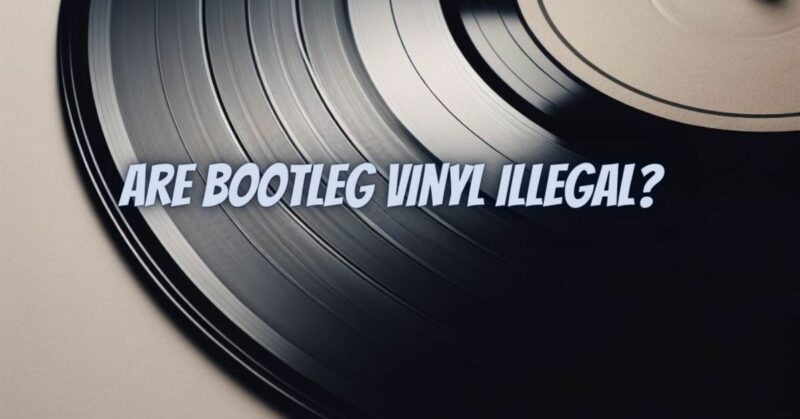The legality of bootleg vinyl varies by country. In general, it is not illegal to own or possess bootleg vinyl, as long as the recordings are not copyrighted. However, it is illegal to manufacture, sell, or distribute bootleg vinyl without the permission of the copyright holder.
In the United States, bootleg vinyl is covered by copyright law. Copyright law gives copyright holders the exclusive right to reproduce, distribute, perform, display, and create derivative works of their copyrighted works. This means that only the copyright holder can authorize the recording and distribution of their copyrighted works. When someone makes a bootleg recording of copyrighted music and sells it without the permission of the copyright holder, they are infringing on the copyright holder’s exclusive rights.
Copyright infringement is a civil offense in the United States. This means that copyright holders can file a lawsuit against copyright infringers to seek damages and injunctive relief. Injunctive relief can include an order to stop selling or distributing the bootleg recordings. Copyright holders can also seek criminal charges against copyright infringers, but this is less common.
There are a few exceptions to the general rule that it is illegal to manufacture, sell, or distribute bootleg vinyl. One exception is the fair use doctrine. The fair use doctrine allows for the limited use of copyrighted material without permission from the copyright holder for certain purposes, such as criticism, comment, news reporting, teaching, scholarship, or research.
Another exception is the first sale doctrine. The first sale doctrine allows for the resale of copyrighted goods that have been purchased lawfully. This means that it is not illegal to sell secondhand bootleg vinyl, as long as the bootleg vinyl was purchased lawfully.
Is it ethical to buy bootleg vinyl?
Whether or not it is ethical to buy bootleg vinyl is a matter of opinion. Some people believe that it is ethical to buy bootleg vinyl if the recordings are not otherwise available or if the bootlegger is selling the recordings at a low price. Others believe that it is unethical to buy bootleg vinyl because it supports a criminal enterprise and deprives artists and record labels of income.
Ultimately, the decision of whether or not to buy bootleg vinyl is up to each individual. However, it is important to be aware of the legal and ethical implications before making a decision.
Here are some tips for avoiding bootleg vinyl:
- Buy vinyl from reputable retailers.
- Inspect the vinyl before you buy it. Look for signs of poor quality, such as warped vinyl or blurry printing.
- Compare the cover and label to the cover and label of a known official release. If there are any discrepancies, the record is likely counterfeit.
- Check the matrix number against a database of official matrix numbers.
If you are unsure whether or not a vinyl record is counterfeit, it is best to err on the side of caution and avoid buying it.


